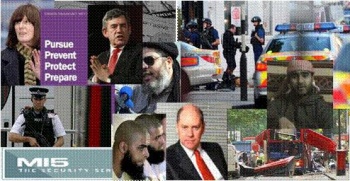|
The UK has a long history of dealing with domestic terrorism, most notably due to its experience of the Troubles in Northern Ireland. The threat to British national security during the Troubles was posed by Republican paramilitary organisations, most notably by the Irish Republican Army (IRA) and its affiliates.
In the 1970s, when the Troubles spilled onto the British mainland, the UK enacted a series of counterterrorism measures, such as Internment, the Northern Ireland (Emergency Provisions) Act (1973-96) and the Prevention of Terrorism (Temporary Provisions) Act (1974-2000).
After various attempts at bringing peace had failed, the the Good Friday Agreement was finally signed in April 1998 and ended the Troubles. The current threat from Irish paramilitary organisations is limited to a small number of Republican splinter groups, such as the Real Irish Republican Army (RIRA).
When the Prevention of Terrorism Act expired in 2000, according to Clive Walker – “its replacement became an acute issue”. [1] As a consequence, it was replaced by a permanent act – TheTerrorism Act 2000, which became the “bedrock” of the anti-terror legislation for the UK.[2]
In direct response to the events of 9/11, a series of other legislations were also enacted by the UK government, such as the Anti-Terrorism, Crime and Security Act 2001, the Criminal Justice Act 2003, the Prevention of Terrorism Act 2005 , the Terrorism Act 2006 and the Counter-Terrorism Act 2008. The objective behind the enactments of these legislations was to ensure that the UK was protected from events, such as 9/11 unfolding on its territory.
In 2003, the government initiated a four pronged counter-terrorism strategy known as Contest (2003-09). It’s ultimate objective was to "reduce the risk from international terrorism, so that people could go about their daily lives freely and with confidence." [3] After the attacks of 7 July, 2005 however, the government felt that it had to do more to prevent people from turning towards terrorism and therefore, in 2009, replaced Contest with Contest 2, which was similar to Contest, but more focused on Preventing Violent Extremism. At present, there are numerous community led projects and organisational initiatives focusing on Prevent.
UK Gov't Counter-Terrorism Organisations
Security Service (MI5) | Secret Intelligence Service (SIS or MI6) | GCHQ | Joint Terrorism Analysis Centre | RICU | Scottish Preventing Violent Extremism Unit |Muslim Contact Unit | Metropolitan Police Counter Terrorism Command | Office for Security and Counter-Terrorism
Think Tanks involved in Counter-Terrorism
Centre for Social Cohesion | Centre for Defence and International Security | CSTPV | Chatham House | European Council on Foreign Relations | Institute for Public Policy Research | Institute for Strategic Dialogue | Institute of Race Relations | Oxford Research Group | Policy Exchange | RAND (Europe) | Royal United Services Institute | The Social Affairs Unit |
Muslim/Islamic Organisations involved in Counter-Terrorism
Al Manaar | Amal Trust | An Nisa Society | Association of Muslim Lawyers | Forum Against Islamaphobia & Racism | Islamic Human Rights Commission | MPACUK | Muslim Association of Britain | Active Change Foundation |
| 
